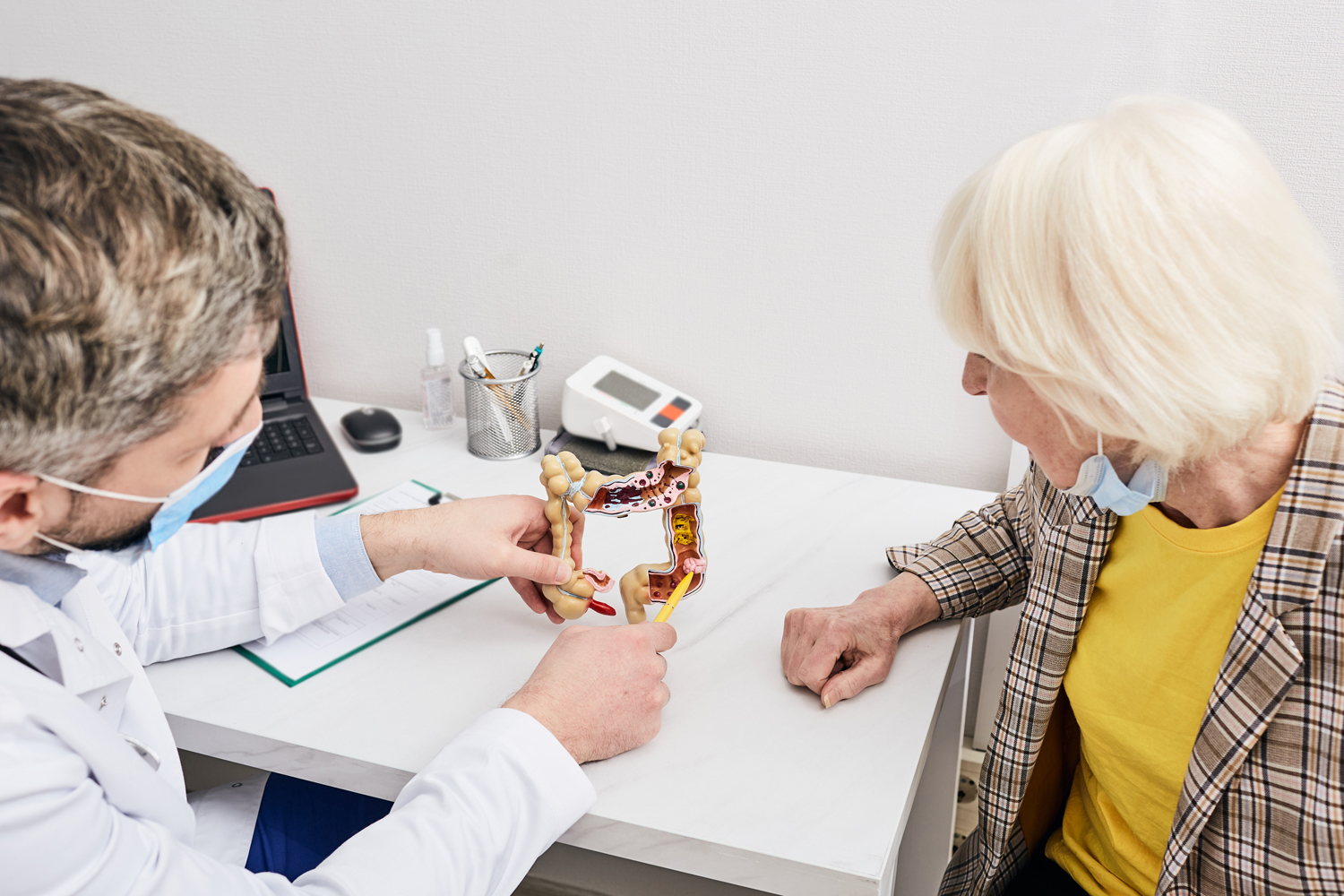COLORECTAL CANCER REMAINS a leading cause of cancer-related death in the U.S. Screening, with colonoscopy or at-home stool-based tests, are two methods recommended for people who are considered average risk beginning at age 45. On July 26, 2024, the Food and Drug Administration (FDA) approved a blood test called Shield as a screening method after a study showed it can accurately detect 83% of colorectal cancer cases. However, blood-based and stool-based screening tests require people who get abnormal results to follow up with a colonoscopy to identify potentially cancerous lesions—and recent research shows only about half do so.
A study published July 29, 2025, in Gastroenterology analyzed data on 6,068 people who received screening with Shield in a primary care setting between May 2022 and September 2024. Of the 228 people who received abnormal results and had follow-up data, only 111, or 49%, got a colonoscopy within six months. In total, just 128 people got a colonoscopy within two years.
The follow-up rates were similar to those seen in previous research. A study, published March 24, 2024, in JAMA Network Open showed just 48% of people who received abnormal results from stool-based screening tests got a colonoscopy within six months.
The effectiveness of these more convenient tests relies on patients actually doing the follow up, says gastroenterologist Folasade May, an associate director of the UCLA Kaiser Permanente Center for Health Equity and a study author. “Both tests require patients to take action—whether it’s scheduling a colonoscopy, arranging time off work, or overcoming concerns about the procedure itself.”
The research shows that the convenience of testing as a first step doesn’t overcome barriers to follow-up, which depends “more on the patient, provider and system-level factors,” May says.
One of those system-level factors is insurance. The study found that individuals with Medicare Advantage were less likely to follow up with colonoscopy at six months compared with people who had private insurance. Medicare Advantage (also called Medicare Part C) allows people to get their Medicare coverage through private insurance providers but may require prior authorizations and may have more limited networks than traditional Medicare plans.
Blood-based and stool-based screening tests only alert patients and their doctors to signals that a person may have cancer, but study authors stressed that the follow-up colonoscopy is a necessity as it detects cancer more accurately and can find precancerous polyps, which can be removed before they progress.
A longer wait after an abnormal result can increase the risk of being diagnosed with advanced cancer, says Carol Burke, a gastroenterologist at Cleveland Clinic Cancer Center, who was not involved in the study, and who stresses the importance of doctors discussing the accuracy and limitation of less invasive screening tests.
“Some screening is better than no screening,” Burke says, but there are pros and cons to stool-based and blood-based tests.
For example, the less invasive tests need to be performed more frequently, Burke says. Colonoscopy is recommended once every 10 years if nothing abnormal is detected whereas blood-based tests are currently recommended every three years, she says.
Studies show that barriers, including taking time off work, having fear and anxiety about results, or misunderstanding why follow-up is necessary, could play a role in patients not getting follow-up after receiving abnormal results.
“We also see challenges in care coordination—for example, delays in outreach or referral for colonoscopy—which can contribute to low follow-up rates,” Burke says.
Both stool-based and blood-based colorectal cancer screening tests are ordered by a medical professional, but health care providers need to stay involved, follow up and provide guidance on additional testing, May says.
“Patients should understand that screening tests—whether stool-based or blood-based—are only the first step in colorectal cancer prevention. An abnormal result doesn’t mean cancer, but it does mean further evaluation is necessary,” she adds.
Cancer Today magazine is free to cancer patients, survivors and caregivers who live in the U.S. Subscribe here to receive four issues per year.





